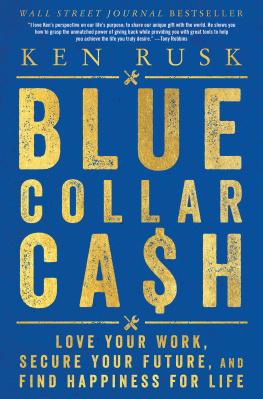Published by Redback,
an imprint of Schwartz Publishing Pty Ltd
Level 1, 221 Drummond Street
Carlton VIC 3053, Australia
www.blackincbooks.com.au
Copyright Jennifer Rayner 2018
Jennifer Rayner asserts her right to be known as the author of this work.
9781760640002 (paperback)
9781743820452 (ebook)
ALL RIGHTS RESERVED.
No part of this publication may be reproduced, stored in a retrieval system, or transmitted in any form by any means electronic, mechanical, photocopying, recording or otherwise without the prior consent of the publishers.
Cover design by Peter Long
Typesetting by Marilyn de Castro
Cover image smartstock / Getty Images
INTRODUCTION
I n the food court of an Ipswich shopping centre, between the ubiquitous Donut King and a Chinese buffet, I sat opposite a 50-something man who seemed on the brink of tears or violence. More than 20 minutes into a near-breathless monologue, the big, hunch-shouldered mans gestures were growing more emphatic, his voice querulous and rising.
I had taken a long late-afternoon bus ride to this suburban mall to speak with the mechanic-cum-One Nation official about his partys campaign for a past state election. This was years ago 2013 when Pauline Hanson was still the answer to a pub trivia question and not proving that time is a flat circle with her powerful vote in our national parliament.
From the beginning it was clear my questions were irrelevant. My carefully structured and Ethics Committeeapproved questionnaire was nothing in the face of this mans powerful need to talk.
He talked about foreign investment, corporate tax-dodging and Australian farmers losing ownership of their land. He talked about overseas-trained mechanics doing cheap and shoddy work that meant clients wouldnt pay for quality anymore. He talked about the rotating cast of unsettling teens at his local shops, the casual midday destruction done by young guys without shifts or TAFE classes to go to.
And he talked about others. Others who were getting more. Had more. More than their share. Taking it from people like him.
I discreetly turned off my recorder. It didnt seem fair or ethical to record this mans deep bellow of frustration, his pained and personal broadside at a world whose contours had taken new shape while hed had his head down, working.
But I remember with incredible clarity the question that rang through his words and hung in the overly chilled air between us, the query that hurt my head and heart as his baggy eyes held mine: where does someone like me fit, now?
He was asking if this economy, this society, still had a place for blue-collar blokes. Because frankly, he couldnt see it. Couldnt work out where he would be useful and valued in his late years; couldnt see how the men and boys coming behind him would be able to work, provide, prosper.
Years on from that afternoon, I look at the jobs numbers rolling in, the long slide in apprentices and the ever-shrinking manual industries, and honestly, I wonder the same thing.
*
As I write this in November 2017, Australias male workforce participation rate has been hovering around 70 per cent for 22 straight months the lowest rate on record. That means fully three in 10 men are neither working nor looking for a job. This is lower than at any time during the global financial crisis; it is much lower too than during the early 90s recession, when hundreds of thousands of Australians lost their jobs.
Once you start scouring the data, its not hard to see why that might be. Australias manufacturing industry has shed over 33,000 jobs in the last five years alone. Agriculture has lost about 15,200, while the utilities sector is down more than 20,800 jobs. Mining has lost 18,400 positions, with a further 31,000 to 50,000 predicted to go by 2020.
Over the last five years Australia has also shed over 232,000 apprentices and trainees, taking the number of training workers to its lowest level in 15 years. There were actually more apprentices and trainees on worksites in 2001 than there were in 2016, despite our population having grown by almost 5 million people since that time.
Before the GFC, the share of men who had been out of work for more than a year was at a 17-year low, averaging just 8 per cent of all unemployed jobseekers throughout 2008. But by 2017 this had jumped up more than five percentage points, with 58,000 additional men out of work for more than a year.
Good jobs for blue-collar blokes are going, and replacements are getting harder to find. Too many skilled, experienced men are giving up on work altogether as a result, leaving their futures in question and this country with a serious challenge ahead of us.
I know these blokes. My grandfather, my father, my brother: all men who make a living with their hands. The older two generations were plumbers; my brother is only now training his way into the family trade after a disjointed decade trying to get paid any other way.
I know bashed-up enamel mugs and muddy work clothes left at the back door, days that start well before sunrise and end with too-brown heads drooping on chests before the evening news is over. I know thoughtful looks and creative solutions that always seem to involve cable ties or a bit of well-placed rag.
So I know a little, too, about what their work means to these men.
It means providing for your family and having the chance to build a comfortable life thats a given. And as with any work there is the routine, a purpose, the reassurance of full days. But for these men there is also the quiet pride of having mastered a set of valuable and as any amateur who has tried to DIY a retaining wall or tinker with their own car engine knows remarkably complex skills; a sense of permanence and continuity when knowledge is passed from boss to apprentice, from one generation to the next.
There is the satisfaction of making something from a jumble of pieces and parts, or changing a landscape with the work of your hands. Days and weeks that are measured out not in hours but in the metres of pipe laid, rivets welded, tonnes of earth displaced.
Often, too, there is a sense of belonging: to the trade first learned from your dad in afternoon shadows, to the factory that employs half the men in your street. Shift work and the seasonal peaks and flows of output can create a rhythm entire communities thrum to. If you doubt this is still so, just visit Gladstone when the cargo ships are queued offshore or Traralgon at the change of shifts.
For blue-collar blokes, work has a meaning and social context that simply isnt found in many of the other jobs our economy is now creating. However incorrectly, teaching and caring are seen as lacking expertise or art, belonging to the domestic realm of womens work. Retail and hospitality is what your kids do for video game money, not serious work for grown-ups. Driving is respectable enough but theres no finished product to stand around at the end of the day, no tidy bit of work that testifies to your skills.
This is the part too many politicians and policymakers dont understand. And its the reason were at risk of going seriously off track in thinking about where these blokes will fit into our economy in the years to come.










